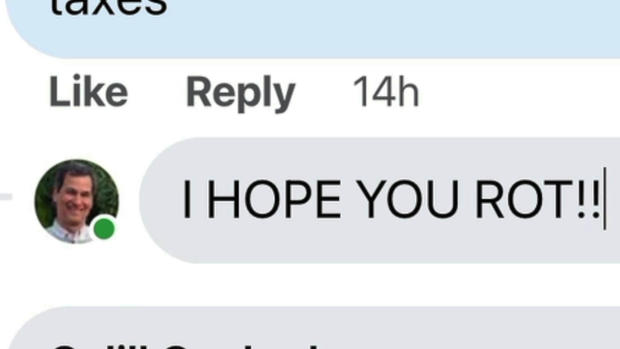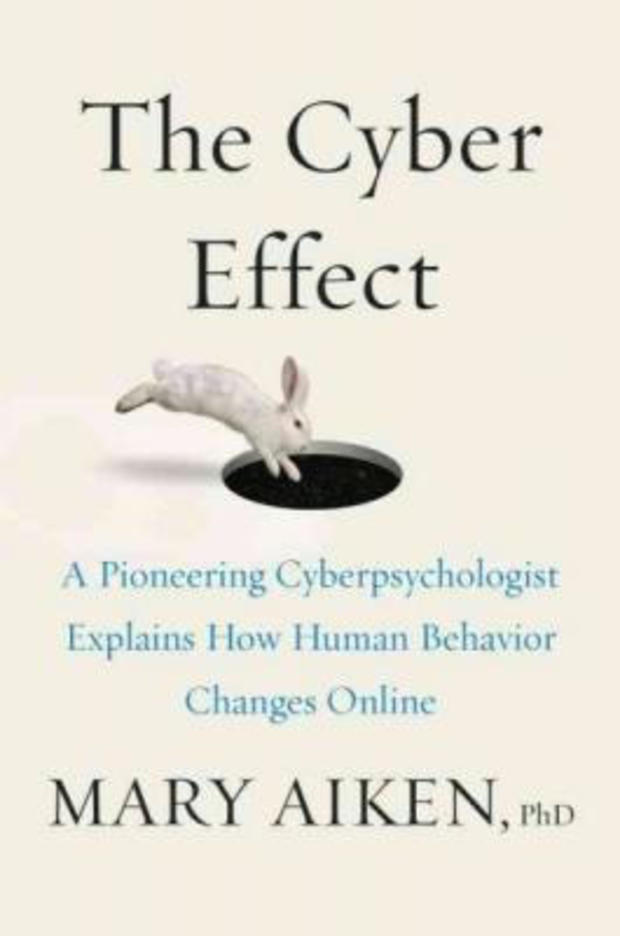How online behavior turns people from Jekylls into Hydes
Something very strange can happen when we go online, and engage on social media: We become totally different people.
Correspondent David Pogue asked, "So, there is a Jekyll-and-Hyde thing happening?"
"Oh, most definitely," said communications teacher Paul Viggiano. He can tell you from experience. "Well, it was Election Night, 2020, and I was on Facebook. And it got spicier, as the face got redder, and the rage was building. I think I may have actually said, 'You're an idiot.'"
"To someone you know?"
"Yes."
"On the great scale, that was pretty mild!" said Pogue.
"But for me, it wasn't. I mean, for me, it was pretty rough."
"And you actually teach communications?"
"That's the embarrassing part!" Viggiano laughed. "One of the classes I teach is interpersonal communications!"
Consultant and psychologist Mary Aiken specializes in forensic cyber psychology, "which is the study of criminal, deviant, and abnormal behavior," she said. "And I'm kept really busy!"
She cites four ways that online conversation differs from in-person conversation.
First, you can see each other in real life ("So, I'm looking at your visual cues, I can read your body language. We lose all of that online"); second, online exchanges may not take place in real time ("Somebody posts something, somebody else comes back later, things can get misinterpreted"); third, most online discussions are public ("If I insult you now, then it increases the shame and the humiliation and the feeling of being targeted"); and finally, online anonymity means no repercussions for being nasty.
Add this all together, and you get what psychologists called the online disinhibition effect (ODE), "It dictates that people will do things online that they wouldn't do in the real world," Aiken said.
That online effect can affect real-world relationships.
"Sometimes you have to speak truth to stupid, and that's usually what starts it," said Robyn. [She asked us not to use her last name.]
Pogue asked her, "Do you fire back in kind when it gets to that level?"
"Depending on my mood, I just poke the bear," she replied. "Just to see where it's going to go, you know?"
"Have you ever cut off ties with people that you knew online?"
"I have, I have," Robyn replied. "Some that were friends. I've had family that has unfriended me because of politics."
But Mary Aiken's latest report indicates that new artificial-intelligence filters may soon help.
- Towards a Safer Nation: The United States "Safety Tech" Market (Paladin Capital Group)
She said, "We found evidence of an emerging billion-dollar sector dedicated to finding technology solutions."
Pogue said, "We could probably also recognize that never in the history of the internet has anyone's mind ever been changed by being yelled at."
"No, that is true!" she laughed.
Paul Viggiano knows that another election is coming soon. He plans to play this one differently: "I'm trying to separate the person from the idea. So, my mantra has been, 'Hate the idea, but don't hate the person.' So, I'm hoping I get to that point by then."
For more info:
- Communications educator Paul Viggiano
- Cyberpsychologist Mary Aiken
- "The Cyber Effect: A Pioneering Cyberpsychologist Explains How Human Behavior Changes Online" by Mary Aiken (Spiegel & Grau), in Hardcover, Trade Paperback, eBook and Audio formats, available via Amazon, Barnes & Noble and Indiebound
Story produced by Gabriel Falcon. Editor: Emanuele Secci.
See also:
- Facebook whistleblower says company incentivizes "angry, polarizing, divisive content" ("60 Minutes")
- Internet shaming: When mob justice goes virtual ("Sunday Morning")
- Here's the brutal reality of online hate (CNET)
- Peering into the psychology of online trolls
- People snubbed on Facebook feel less "meaningful existence," study finds





